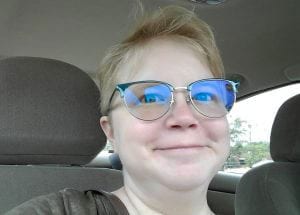By Rebekah Palmer
The rare disease community has an all too common problem of not using precise language when it comes to addressing the people and the needs of those who are most impacted by rare disease opposed to those most affected by rare disease.
Due to the often cited fact that 50% of people living with rare disease are children, parents of rare children are mislabeled as the most impacted by the disease when it is their children who are. Rare children have different needs that must have support as opposed to their parents who are most affected by their child’s illness.
The mislabeling of otherwise healthy parents as the most impacted by a rare condition results in healthy people being put in the spotlight and exalted as experts of a disease they do not live with in their workplace or personal lives, but rather in their caretaking of their child.
Being a caretaker is a role that should continue to have its own support system; albeit, those who are most impacted by illness are those who live with it and can never be in a body without it. Therefore the rare patient, the one most impacted by the condition, should be seen as the expert on the disease as the participant in clinical trials, treatment, and lifestyle concerning an ill body.
Seven thousand different kinds of rare diseases currently exist across our globe, and the other 50% of people who live while terminally ill are adults expected to join the masses of other adults in leisure and work. While a terminally ill teenager wants to focus on being just like the other youth, terminally ill adults want to be supported for their needs outside their otherwise healthy peers.
Rare adults care about their parents/guardians/support system as others affected by their poor health, but we also want to be recognized as more than the ill relative/patient/duty that another human being nurses in sickness.
Rarely are rare adults considered the coworker, friend, innovator, partner, and parent in a room at a rare conference let alone the expert in the field of the disease we face every day. Cast in the role of expert is the most common place of people affected by the rare disease—our parents, our guardians, and our medical professionals.
If the rare community is to have patient conferences and patient advocacy meetings and expect patients to take treatment and clinical trials and cure trials, then rare community needs patient access, cooperation, and input outside of their own children with consent of us rare adults most impacted.
When addressing a rare parent, this has to mean that a parent has a rare disease and is an authority of life with children and spouse or single parenting. The parents who do not have the disease and care for their own child (who happens to be the patient) should be adequately labeled caregiver. As a caregiver, they should then have the session and support they need for the space to acknowledge what that means for them and their family. This should never come at the expense of the experts impacted most by the scope of rare disease—the rare children and adults.
When there is awareness for rare, and conferences abound, awards for excellence in rare should result from a pool of those living rare. Those who are most affected as family members, partners, caregivers, and medical professionals, should garner attention in the role they occupy as support system.
With this precise language, perhaps we as rare community can better support each other as rare and allies, including challenging the ableism perpetrated among us and in the disabled community as well. We should be able to support a better world in this as the world’s largest group in need of awareness, representation, and support.







